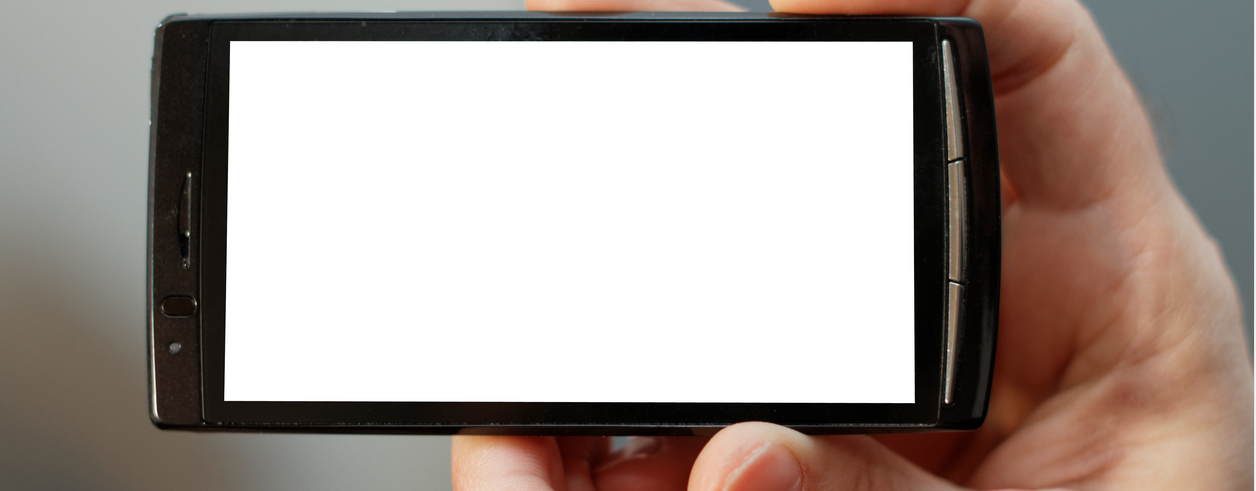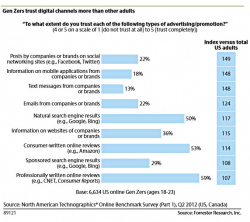The Brands Don’t Stand A Chance: The Mobile Driven Life Of Gen Z’ers
Published: August 20, 2013It’s no wonder that Generation Z’ers take mobile connectivity for granted; many are using mobile almost as soon as they can hold the device.
According to the Pew Research Center, among American teens, 78% now have a cell phone, 37% a smartphone and 23% a tablet and 1 in 4 are “cell-mostly” Internet users.
Being connected has become second nature to them. And that means to keep up, brands need to be rethinking the way they market to Gen Z.
They expect everything— information, products, friends, entertainment— to be instantly available in the palm of their hand. This info saturation makes them more impatient, socially connected and constantly stimulated more than any generation before.
As exciting as this sounds, it will also present a new challenge for marketers looking to engage with these users. They are much more savvy and expect a higher level of reward for their engagement with your brand.
They are used to a world that everything can be done in real time. Every interaction they have can be a two-way dialogue. Gone is the day of the marketing monologue and one-way broadcasts from a brand.
This generation has their own and unique ideas about how consumers and brands are to interact. They have an expectation of quick, seamless communication across many platforms and social channels.
Transparency is not just important; it’s required. Brands should be utilizing NFC tags, QR Codes, Augmented Reality or other mobile-friendly content strategies to reach out and provide product/brand information.
Gen Z’ers see the mobile device as an extension of themselves. It’s omnipresent and indispensable, and for about 25% of users, it’s their primary device for internet access.
Social, local and mobile strategies are key to reaching this group, because of their ubiquitous connectivity. This generation will likely be the first generation to consume more media online than offline, according to a report by Forrester Research.
Moreover, Gen-Z audiences are often distracted with multiple forms of media: 84% multitask with an Internet-connected device while watching TV, using on average 1.5 other Internet-connected devices (laptops, tablets and cell phones).
They tend to be indiscriminate with their media consumption, and are more likely than previous generations to embrace and trust online communications, like social and mobile media and email.
Audiences from this generation appear even to trust ads and promos more than previous generations.
Some 22% of surveyed Gen-Z consumers say they trust somewhat or trust completely posts by companies or brands on social networking sites. That is roughly 49% higher than previous generations. Similarly, Gen-Z consumers are 48% more likely than other generations to trust somewhat or completely the content on mobile applications from brands, as well as text messages from brands.
This generation is exposed to so many brand choices (in many cases overexposed), they tend to be demanding consumers, Forrester found.
Tracy Stokes of Forrester said in a blog post, “Gen-Zers are open to a relationship with brands, as long as those brands are authentic and live up to their high expectations and consistently deliver what they need.”
There are some good takeaways from the Forrester research, and that Stokes sums up nicely:
- Practice participation, not persuasion. Gen Z grew up with two-way brand conversations, so a traditional one-way sell won’t work. Invite them to participate in your brand via new and fresh experiences that earn their trust.
- Deliver a consistent brand experience online and offline. Gen Z see no distinction between the real and virtual worlds. So the experiences that brands offer must provide the same seamless experience.
As engagement with this Cohort becomes increasingly more important for your brand, remember to look to new, fresh, dialogue-based approaches.
Gen Z’ers also have a tendency to be brand advocates and will share their positive experiences with a brand online. Word-of-mouth endorsement from a peer can be huge asset to any brand in that user’s friend circle, both online and in the real world.
How are you reaching out to Gen Z?


